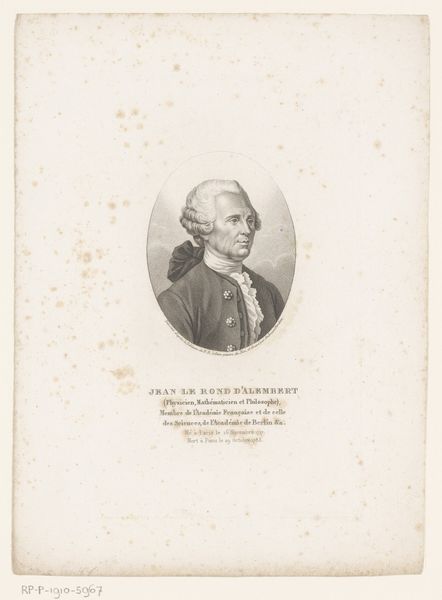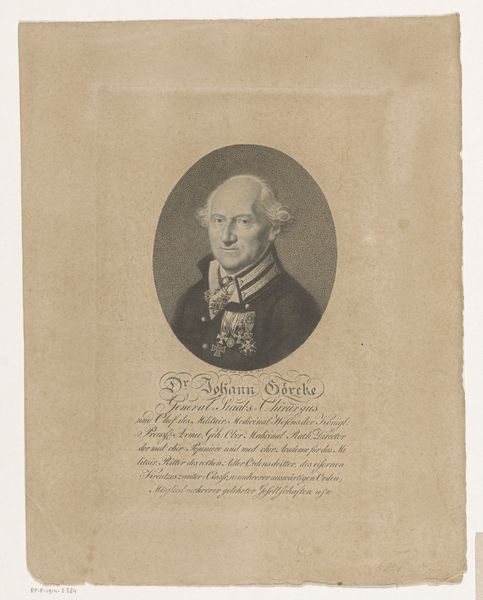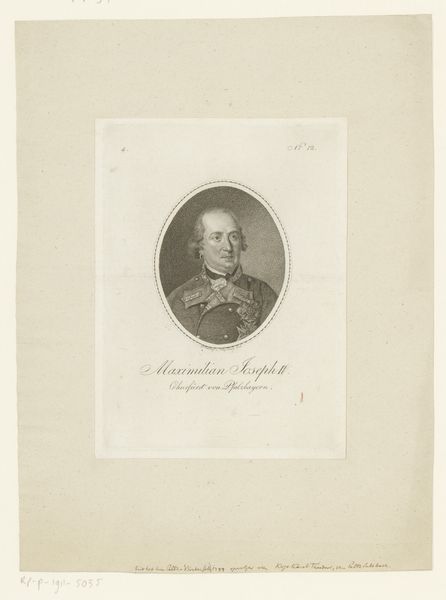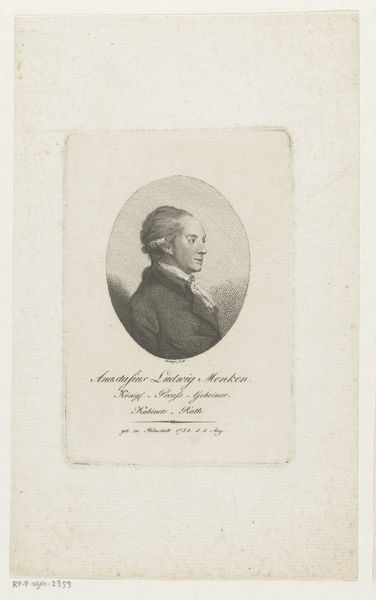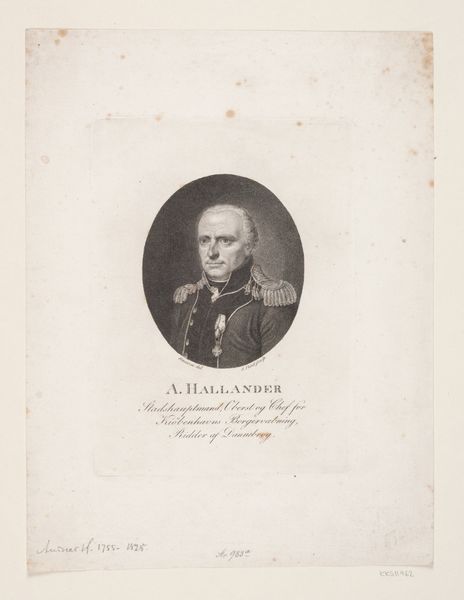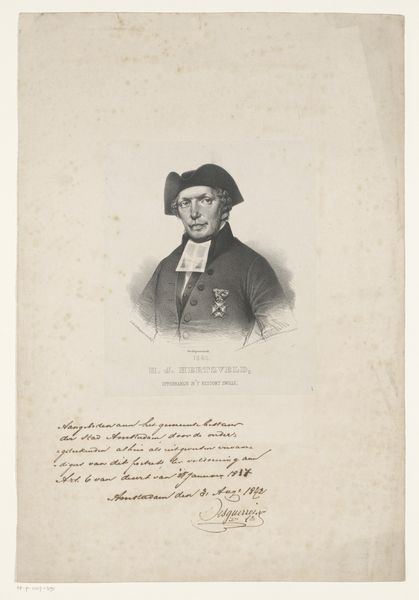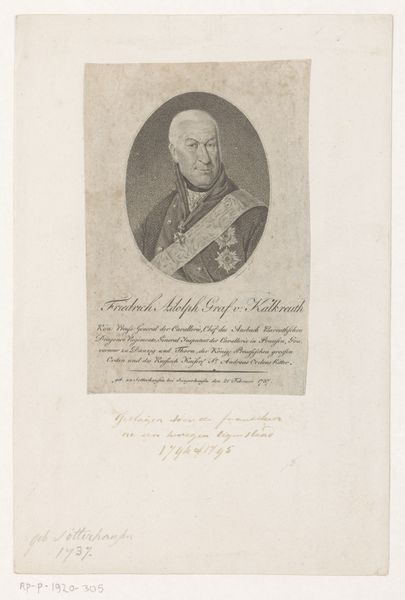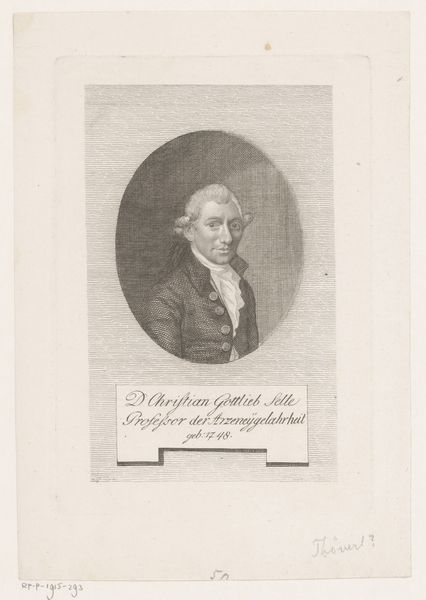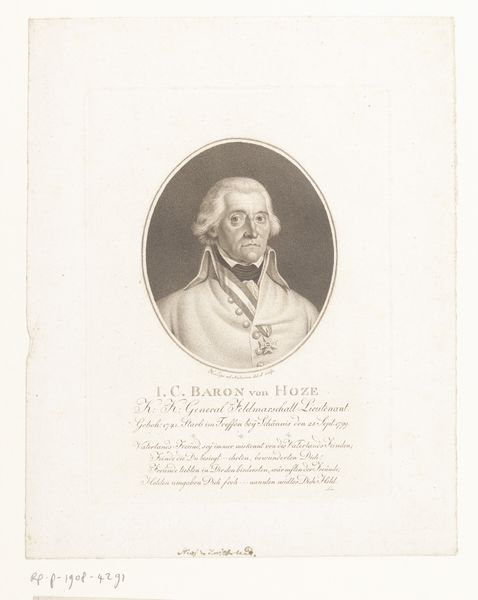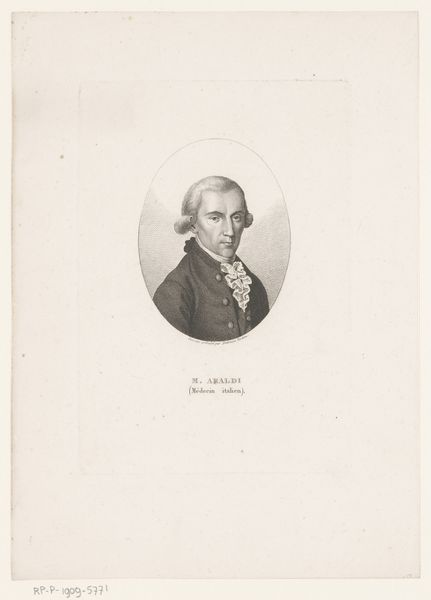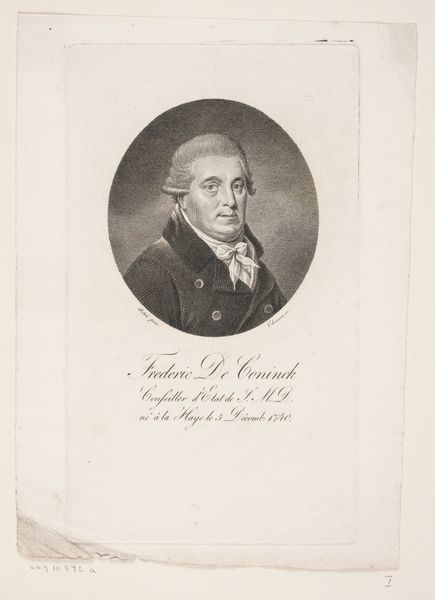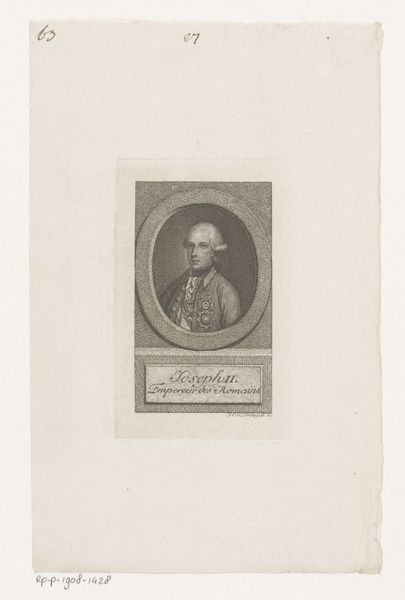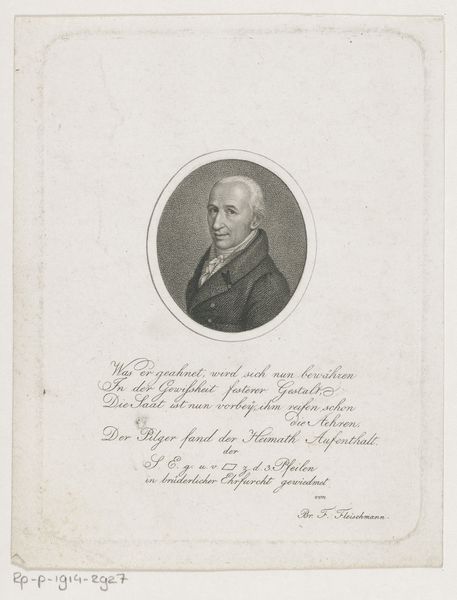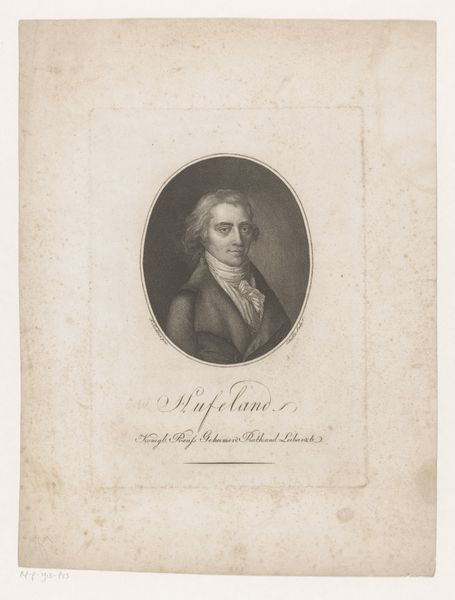
print, engraving
#
portrait
#
pencil drawn
#
medal
#
neoclacissism
# print
#
pencil sketch
#
history-painting
#
academic-art
#
engraving
Dimensions: height 170 mm, width 124 mm
Copyright: Rijks Museum: Open Domain
This portrait of Niklaus Franz von Bachmann was created by Johann Heinrich Lips, using etching and black ink. It is made through a labor-intensive method, involving coating a metal plate with a waxy, acid-resistant substance, then drawing through this coating with a pointed tool. The plate is then bathed in acid, which bites into the metal where the coating has been removed, creating recessed lines. The plate is inked, the surface wiped clean, and the ink remaining in the etched lines is transferred to paper under high pressure. What’s interesting is the translation of human likeness into this mechanical process, which renders the image reproducible. The resulting print, far from being spontaneous, bears the weight of technical processes and skilled labor. Unlike painting or sculpture, prints were relatively affordable, and they brought images like this to a wider audience. In this sense, prints like this were vital to the social life of the 18th and 19th century.
Comments
No comments
Be the first to comment and join the conversation on the ultimate creative platform.
